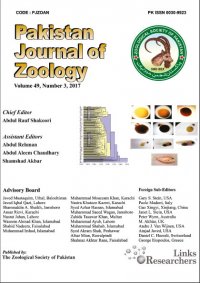The present study was carried out to investigate the exposure of mercuric chloride on mice offsprings’ social behavior, neuromuscular coordination, motor activity, blood parameters and liver structure alterations. On the first day of pregnancy, 30 pregnant mice were equally divided into three groups. Tap water was provided to the control group (Group I). Group II and Group III animals were orally received 5 and 10 ppm of HgCl2.The treatment started the first day of pregnancy and continued to the day 15 after birth thearafter the dams were sitched to tap water. The behavioral results showed a significant increase in nonsocial investigation while social investigation and defense activities were decreased significantly. Results indicated that both latencies, to first threat and first attack were increased significantly, while the duration time of flight, number of fights, nasonasal, nasogenital and rears were decreased significantly. The latency to first bite was significantly increased, however the number of bites was decreased dramatically when compared with control. Motor activity and grip strength data were decreased significantly in exposed offsping. Interestingly, blood parameters like packed cell volume, red blood cell count, hemoglobin content, platelets and white blood cells were significantly reduced, while the glucose level and gamma glutamyl transferase (GGT) activity were elevated in treated animals. Liver was damaged and the liver sections showed vacuolization of the cytoplasm of the hepatocytes, necrosis of hepatocytes, polymorphism of tissue, nuclei and vessel congestions when compared with control group. The development, behavioral, biochemical and histological disorders were observed due to exposure to mercury via placenta during pregnancy and / or during lactation through weaning period. Overall, mercury chloride administration had direct influence on the social behavioural and blood parameters in the mice offsprings.










